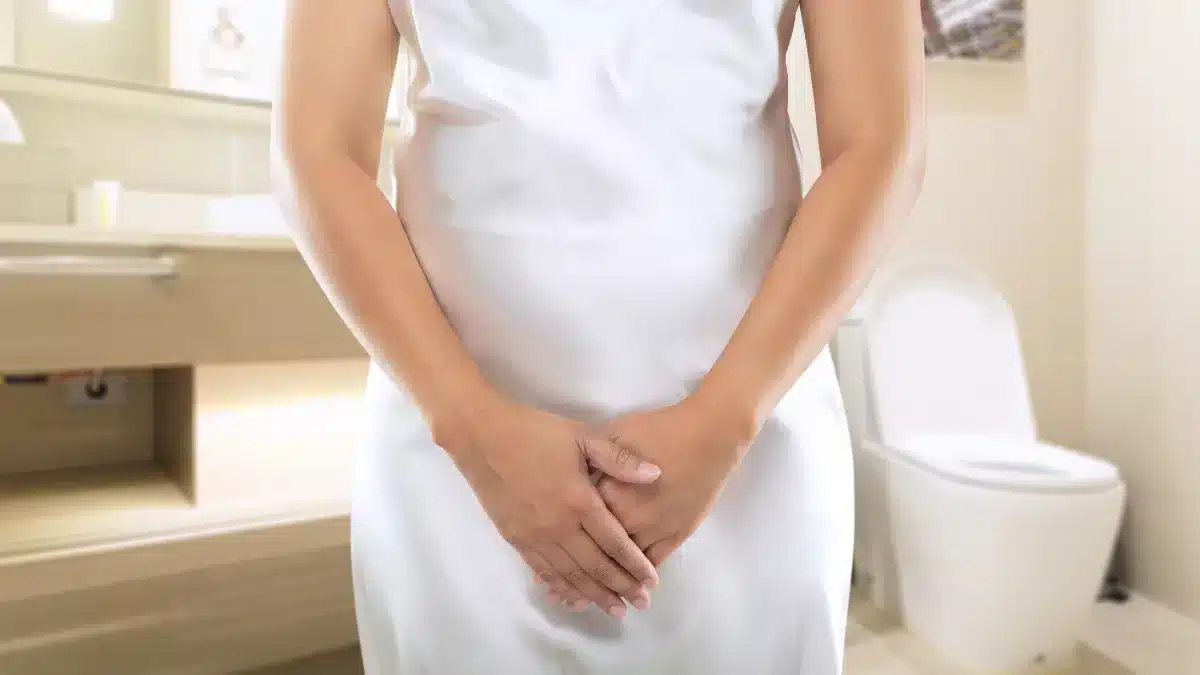Menopause Vaginal Dryness: Understanding the Uncomfortable Symptoms
During Menopause, the fluctuations in hormonal levels lead to various physical and emotional changes.
One common symptom experienced by many women during Menopause is vaginal dryness.
This symptom can be uncomfortable and impact a woman’s overall quality of life.
This article will discuss the symptoms, causes, risk factors, available treatments, and management tips for Menopause vaginal dryness.
Symptoms of vaginal dryness during Menopause
The symptoms of Menopause vaginal dryness can vary in intensity from woman to woman.
Some common signs include:
- Dryness: The most apparent symptom is a lack of vaginal moisture, leading to discomfort during sexual activity or even during normal daily activities
- Irritation and itching: Due to the lack of lubrication, the vaginal tissues can become irritated and itchy, causing discomfort
- Pain during intercourse: Vaginal dryness can result in painful intercourse due to friction and sensitivity of the dry tissues
- Urinary symptoms: Some women may experience urinary issues like increased frequency, urgency, or Urinary tract infections due to changes in the vaginal flora
- Emotional impact: Vaginal dryness can cause emotional distress, reduced sexual desire, and negatively affect intimacy with a partner
Causes of Menopause vaginal dryness
Vaginal dryness during Menopause is primarily caused by the decrease in Estrogen production.
Estrogen plays a crucial role in maintaining the health of the vaginal tissues, keeping them thick, lubricated, and elastic.
As Estrogen levels decline, the vaginal walls may become thinner, drier, and less flexible. It leads to symptoms like dryness, itching, and irritation.
Risk factors

Several factors can increase the risk of experiencing vaginal dryness during Menopause.
These risk factors include:
- Smoking: Smoking can worsen vaginal dryness as it affects blood circulation to your vagina and reduces lubrication
- Medical history: Conditions like Sjogren’s syndrome and certain autoimmune disorders can contribute to vaginal dryness
- Breast cancer treatment: Some Breast cancer treatments, like chemotherapy or hormone therapy, can lead to vaginal dryness
- Hygiene products: Some soaps, douches, and scented products can disrupt the natural vaginal pH balance and result in dryness
- Certain medications: Antihistamines, antidepressants, some allergy medications, etc., may increase vaginal dryness as a side effect
- Childbirth and breastfeeding: The hormonal fluctuations during childbirth and breastfeeding can impact vaginal lubrication
- Emotional factors: Stress, Anxiety, and Depression can affect sexual desire and lubrication, contributing to vaginal dryness
Treatment for vaginal dryness in Menopause
Fortunately, various treatments are available to alleviate the discomfort caused by vaginal dryness during Menopause.
Some common Menopause vaginal dryness treatments include:
- Vaginal moisturizers: Non-hormonal, water-based vaginal moisturizers can be used regularly to keep the vaginal tissues hydrated and alleviate dryness
- Vaginal lubricants: These are short-term solutions to be applied before sexual activity to reduce friction and discomfort during intercourse. They are especially useful if moisturizers alone do not provide sufficient relief
- Vaginal Estrogen: For women who prefer localized treatment, vaginal Estrogen in the form of creams, tablets, or rings can be directly applied to the vaginal tissues, delivering Estrogen where it’s needed most
Management tips

Here are some effective management tips for vaginal dryness Post-menopause:
- Phytoestrogens: Phytoestrogens, such as nuts, seeds, etc., mimic Estrogen in the body and may help alleviate mild Menopause symptoms
- Lifestyle changes: Certain lifestyle adjustments, such as quitting smoking and maintaining a healthy diet, can positively impact vaginal health during Menopause
- Pelvic floor exercises: Regular pelvic floor exercises can strengthen the pelvic muscles and improve vaginal blood flow, potentially helping with dryness and discomfort
Takeaway
Menopause vaginal dryness is a common and uncomfortable symptom experienced by many women during this stage of life.
The decrease in Estrogen production plays a crucial role in causing this condition.
It leads to various symptoms, such as lack of vaginal moisture, irritation, pain during intercourse, and emotional distress.
Fortunately, various treatments, including vaginal moisturizers, lubricants, and localized vaginal Estrogen, offer relief and can improve the overall quality of life.
It’s essential to consult a healthcare professional to find the most suitable treatment based on individual needs and medical history.
Additionally, a Phytoestrogen-rich diet, lifestyle changes, and pelvic floor exercises can also contribute to managing vaginal dryness during Menopause.
By understanding and addressing this symptom, women can regain comfort and confidence in their daily lives and intimate relationship.
Frequently Asked Questions
What helps vaginal dryness during Menopause?
During Menopause, vaginal dryness can be alleviated with treatments like non-hormonal moisturizers and lubricants, localized vaginal Estrogen, and lifestyle changes. These options help maintain vaginal moisture, reduce discomfort, and improve overall quality of life by addressing the underlying hormonal changes and promoting vaginal health.
How can I increase my Estrogen for lubrication?
To increase Estrogen for lubrication, consider localized vaginal Estrogen treatments, available in creams, tablets, or rings. These treatments deliver Estrogen directly to the vaginal tissues, restoring moisture and elasticity, alleviating dryness, and enhancing lubrication. Consult a healthcare professional to determine the most suitable option based on your needs and medical history.
What is the best thing for Menopause dryness?
The best thing for Menopause vaginal dryness is a personalized approach, considering individual preferences and medical history. Non-hormonal vaginal moisturizers and lubricants provide relief for mild symptoms. For more severe cases, localized vaginal Estrogen treatments offer effective results.
How can I naturally increase lubrication after Menopause?
To naturally increase lubrication after Menopause, consider incorporating Phytoestrogen-rich foods into your diet. Staying hydrated, maintaining regular sexual activity, and using non-hormonal water-based lubricants during intercourse can also help. Pelvic floor exercises may improve blood flow to the vaginal area, promoting lubrication
WowRx uses only high-quality sources while writing our articles. Please read our content information policy to know more about how we keep our content reliable and trustworthy.






